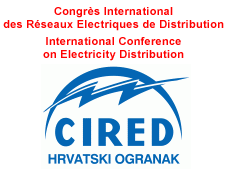Department of Energy and Power Systems was founded at the 129th Faculty Council’s Regular Session of the Technical College University of Zagreb, on Tuesday June 26, 1934. Department of Energy and Power Systems studies and innovates in the fields of generation, transmission, distribution and use of electrical energy, energy efficiency, high voltage engineering, smart grids, energy management, nuclear engineering and safety, electricity markets, and electric vehicles. Throughout the years, the Department has become the leading authority in the field of electrical power engineering in the region, maintaining long-term collaboration with the industry sector. Furthermore, it is recognized through its research activities and a large number of published scientific papers in JCR journals, as well as numerous national and international research projects. In total, the Department has 52 employees (16 Professors – 9 Full, 4 Associate and 3 Assistant) and offers substantial educational and R&D facilities, including five Research Laboratories, six department teaching halls and a department library. Through its activities, the Department has developed valuable international collaboration with many research institutions around the world. Researchers of the Department are currently involved in 3 HORIZON 2020 projects, 2 bilateral projects, 1 Erasmus+ project, 5 projects financed by the Croatian Science Foundation, as well as the principal investigators of a number of industry-funded projects.
Hrvatski IEEE PES odjel i nuklearno društvo organiziraju predavanje
The South African Pebble Bed Modular Reactor (PBMR) and its fuel
Predavanje će održati profesor Johan B. Malherbe, University of Pretoria, South Africa, u 13 h 28. svibnja, dvorana D244 (2. kat D zgrade na Zavodu za visoki napon i energetiku).
PBMR dizajn nuklearnog reaktora nudi modularano rješenje, male snage i dodatne pouzdanosti.
Više o predavanju i predavaču u nastavku poruke.
One of the new inherently safe designs in nuclear reactors is the pebble bed modular reactor (PBMR). This talk will give some salient features of the South Africa design of the PBMR. Special attention will be given on the design and functions of the fuel particles which is on the form of small multilayered spheres, called TRISO particles. These coated particles consist of a UO2 kernel surrounded by four layers, which are all CVD deposited. The layers are a buffer graphite layer next to the kernel followed by an inner pyrolytic carbon layer (IPyC), a SiC layer and finally an outer pyrolytic carbon layer (OPyC). Because the coated particles operate in a very harsh environment (e.g. high temperatures with repeated rapid cooling and heating-up times, high flux neutron irradiation, containment of the radioactive fission products) the microstructure and composition of the layers are extremely important to preserve the integrity of the particles.
Johan Malherbe is professor of physics and head of the department of physics at the University of Pretoria.
His field of expertise is in surface analysis and ion-solid interactions, in which he had been invited to write several review papers and give invited talks.
Lately he has been contracted to do research on several aspects of the fuel used in the PBMR.


 Pristupačnost
Pristupačnost
